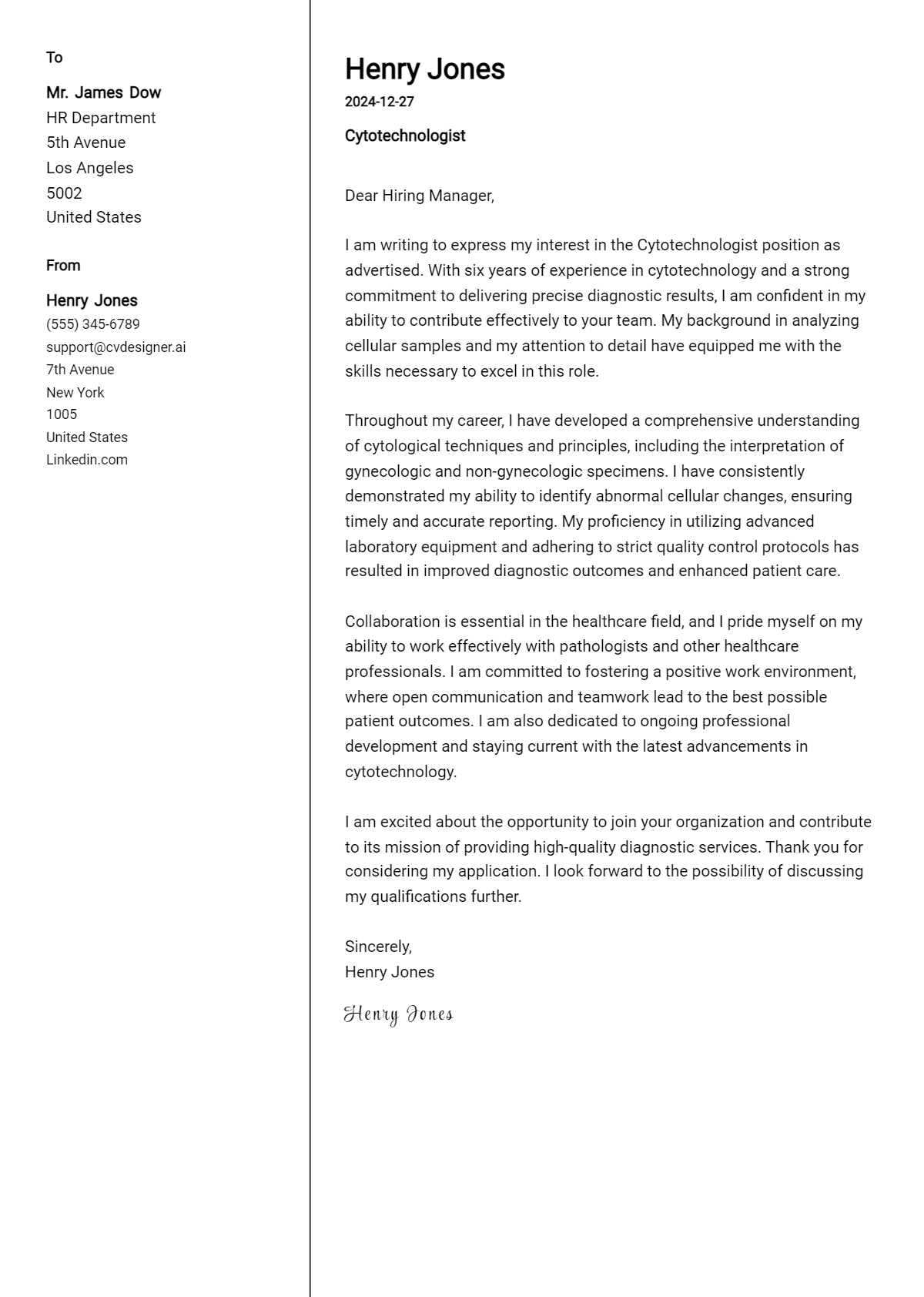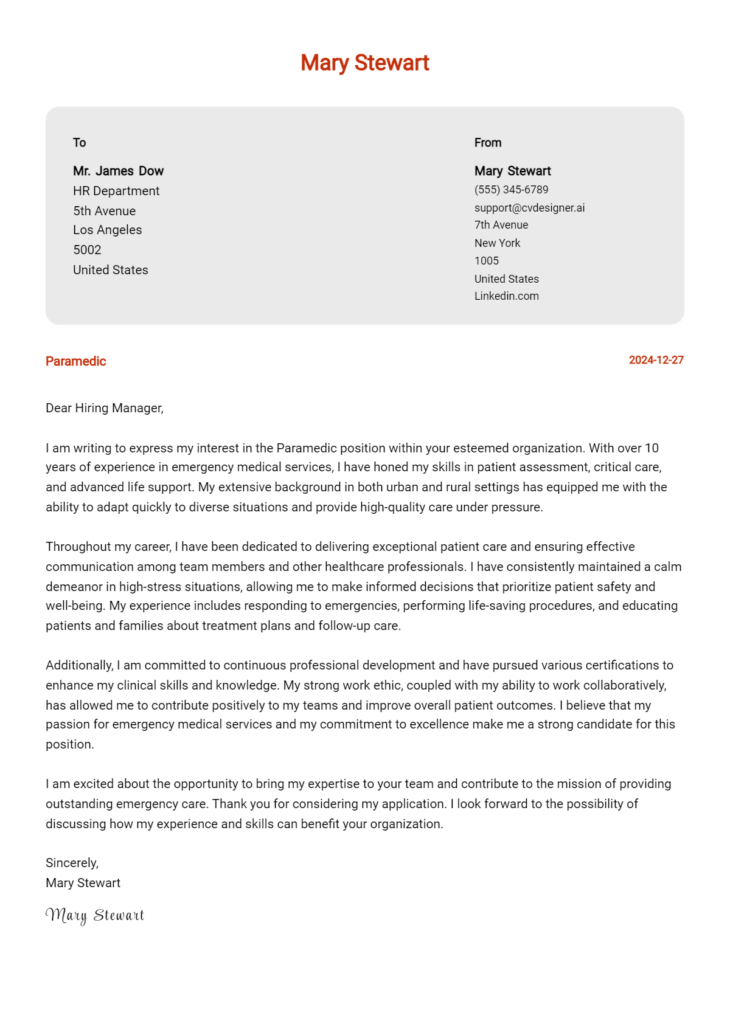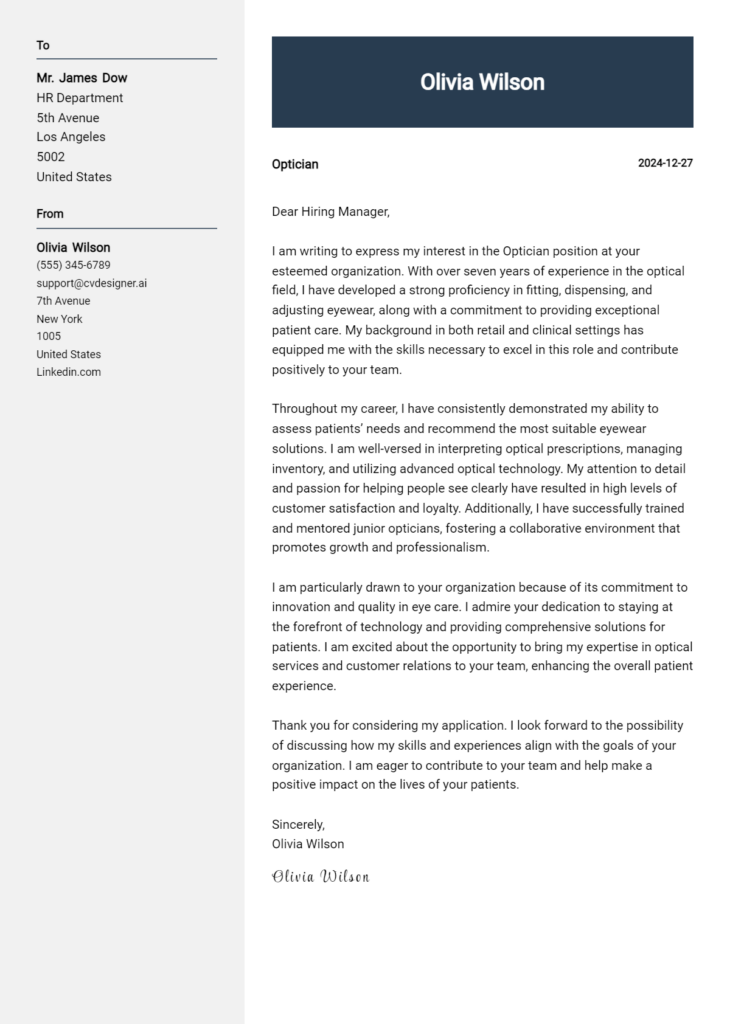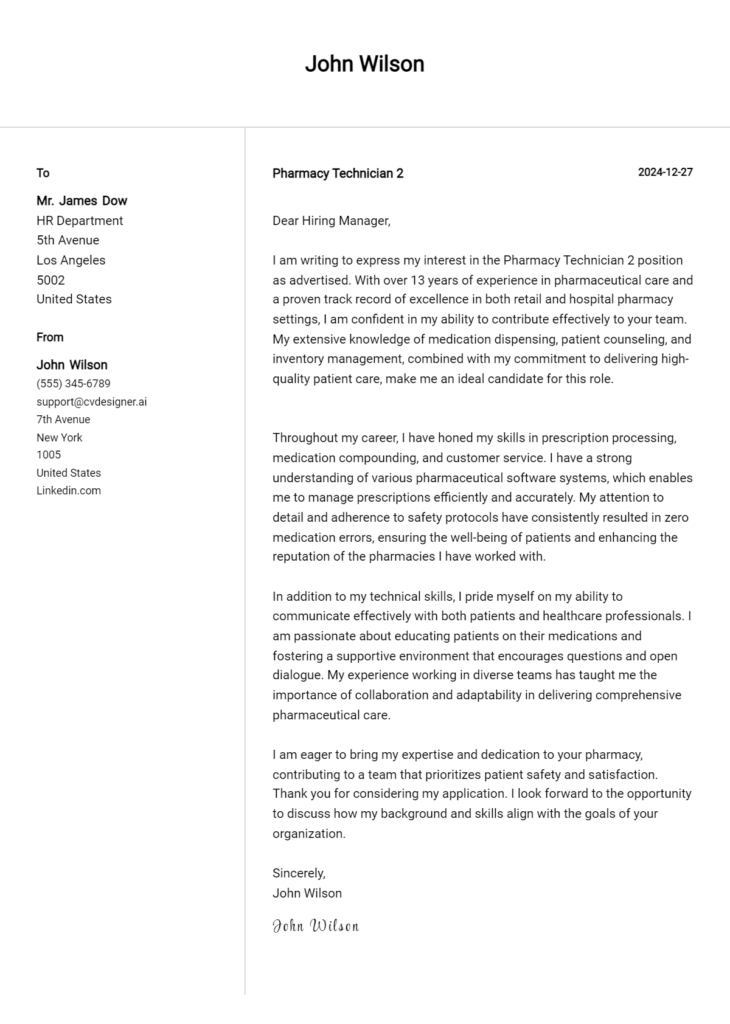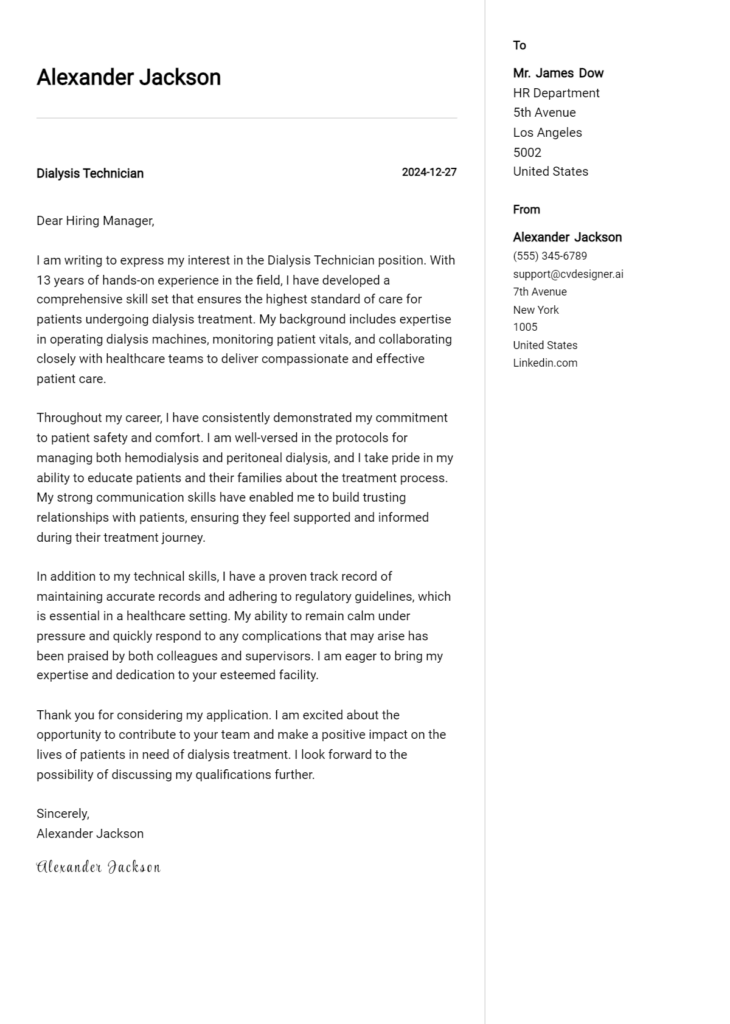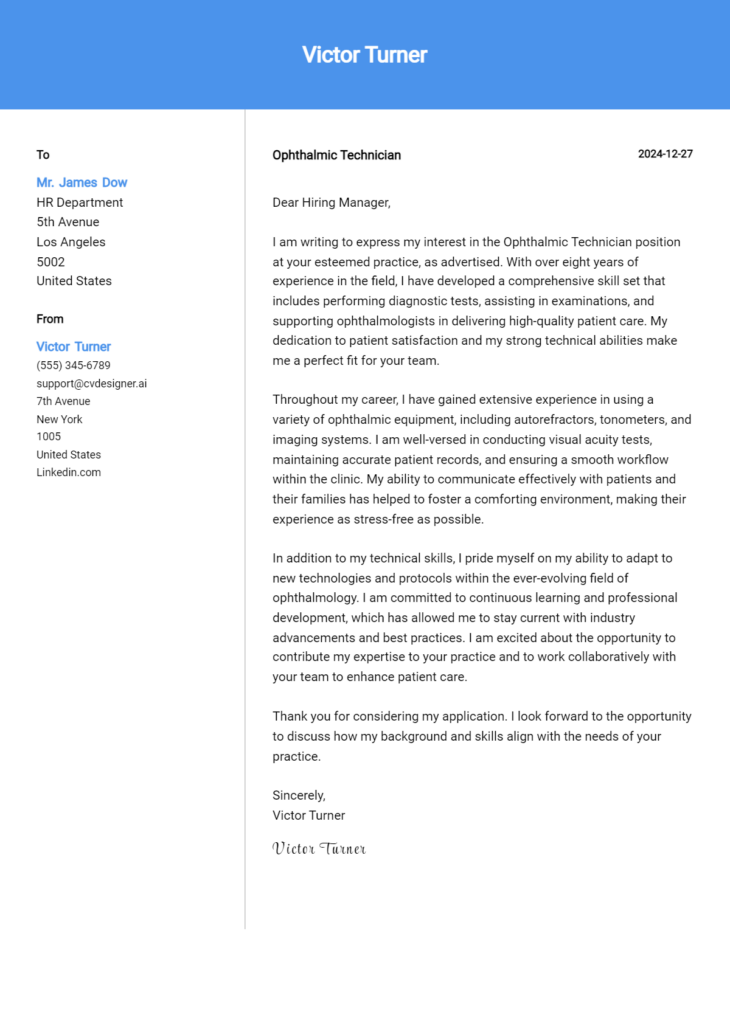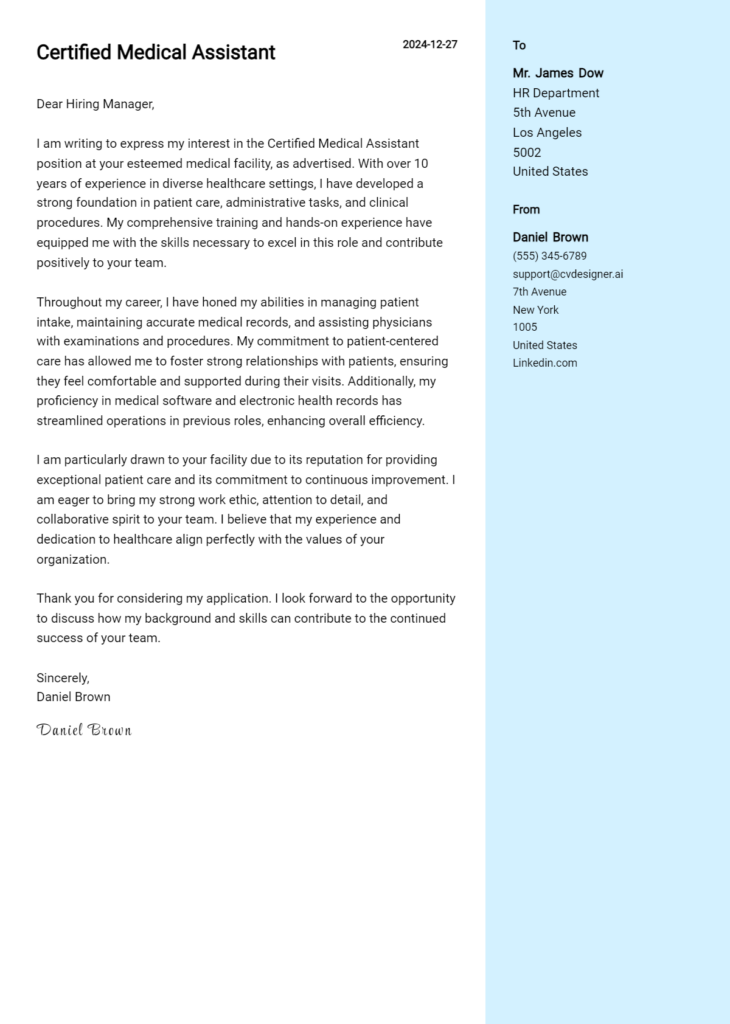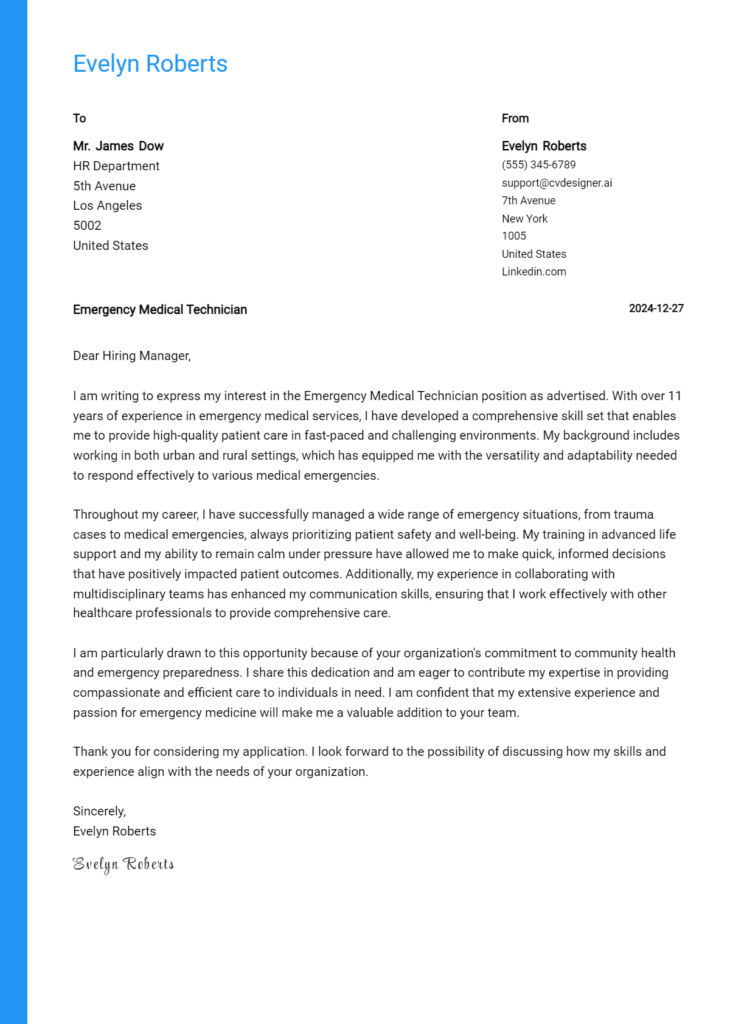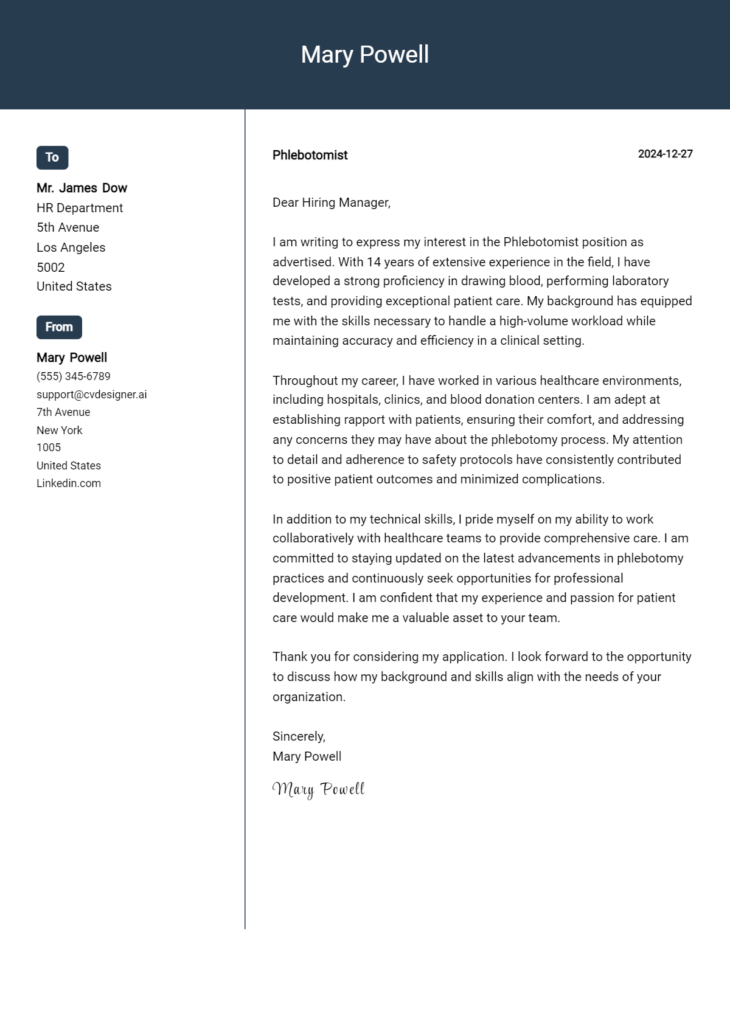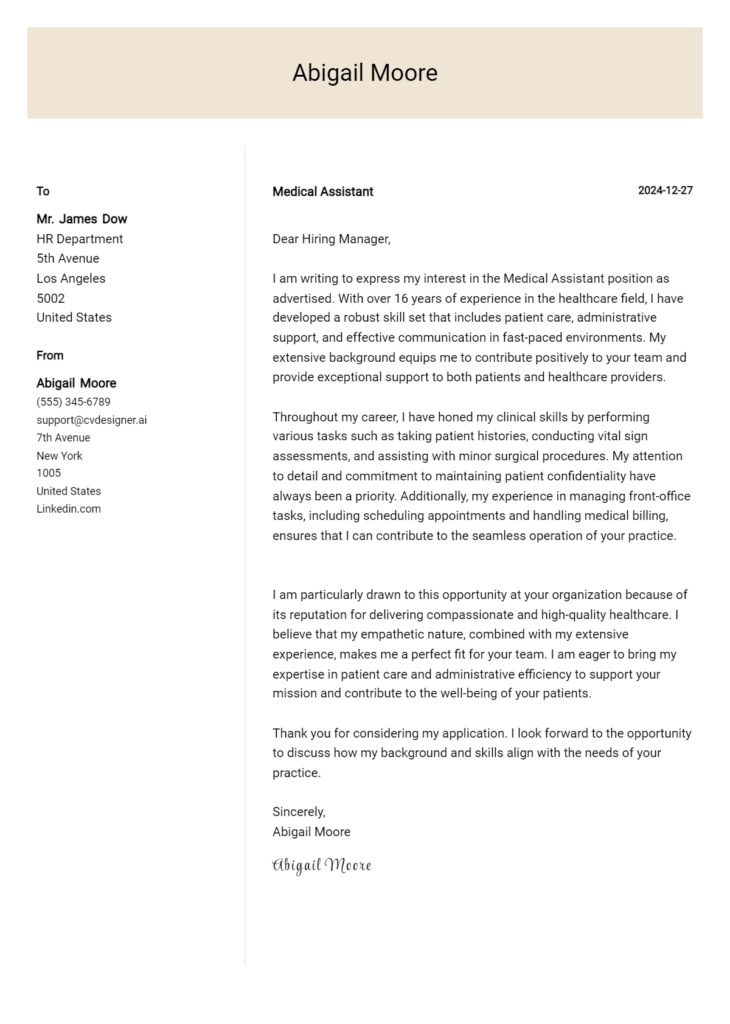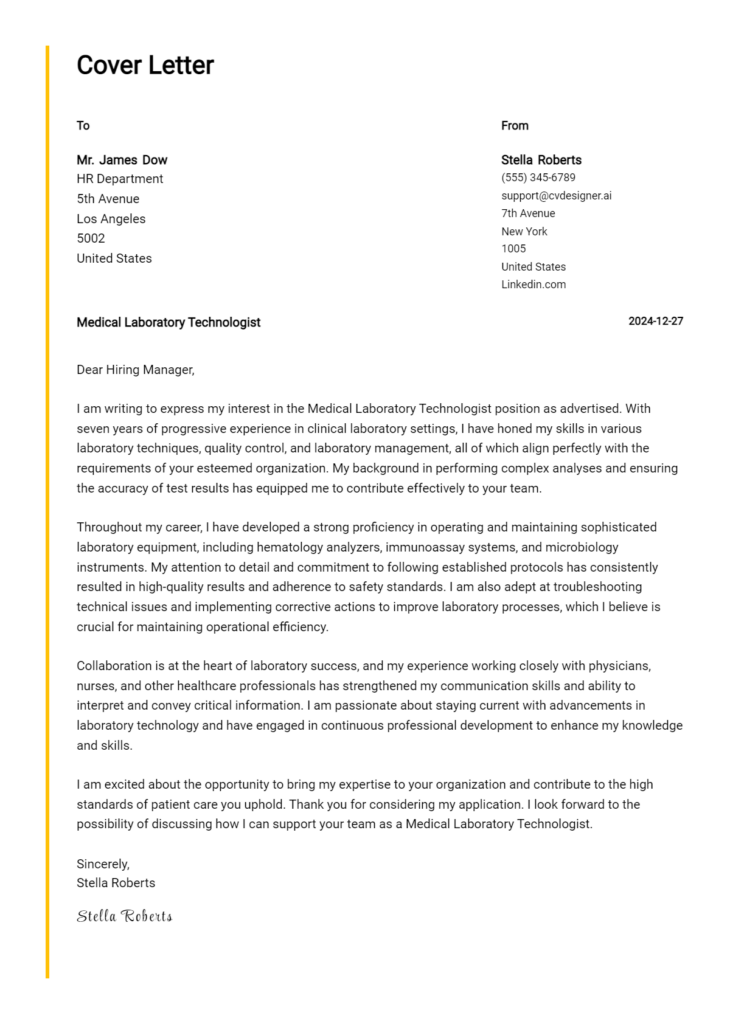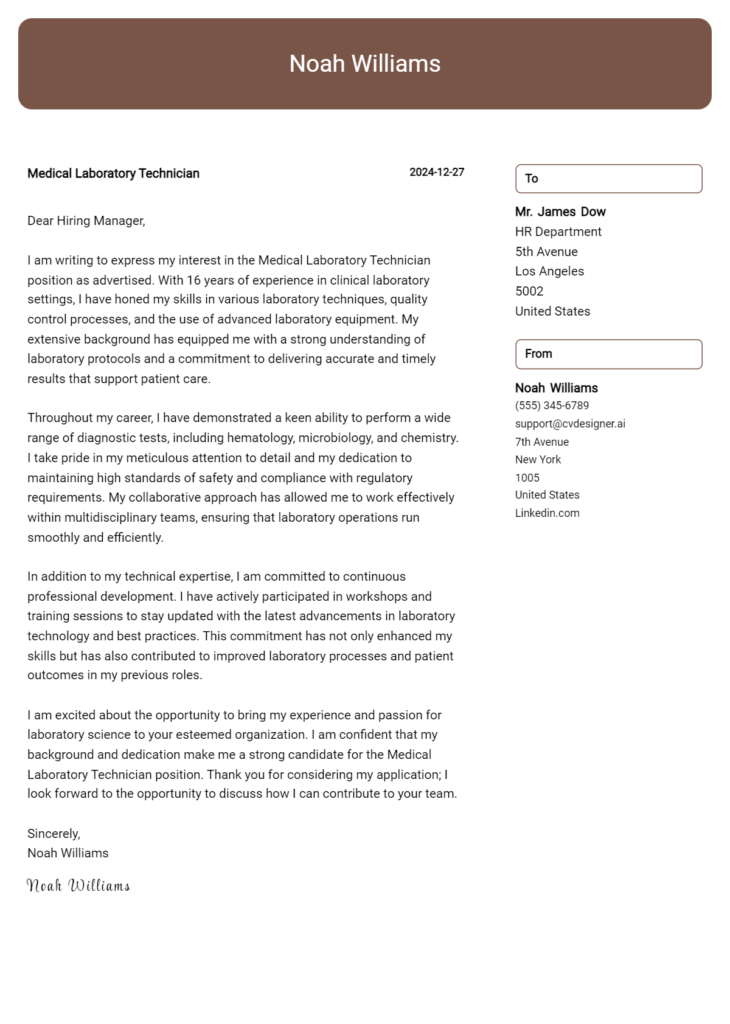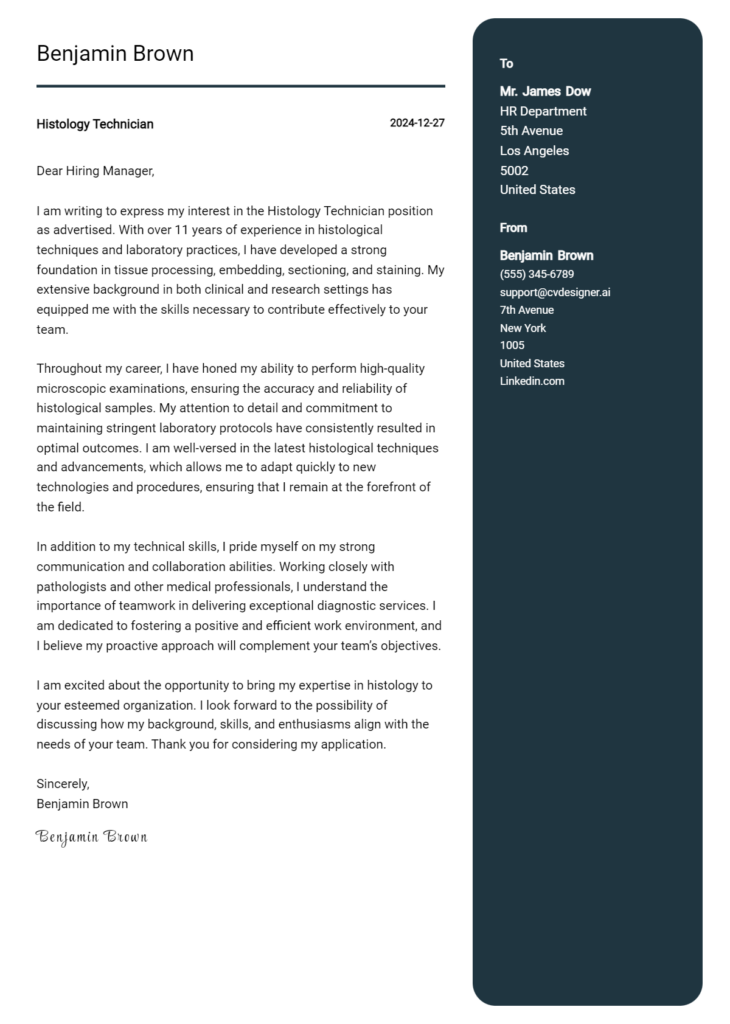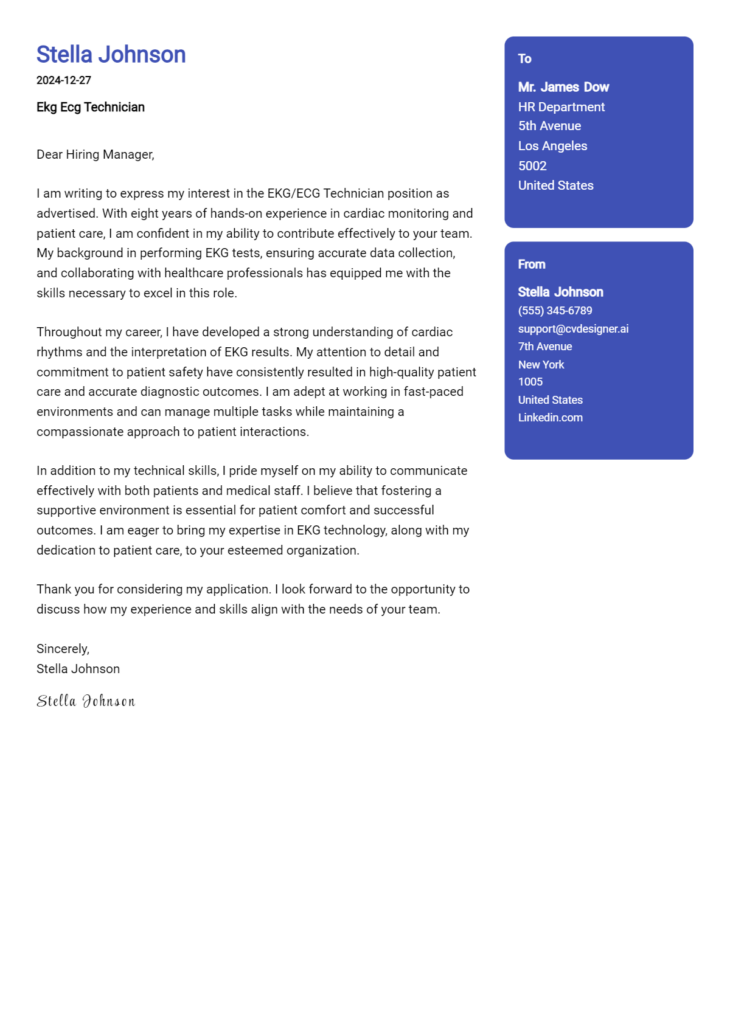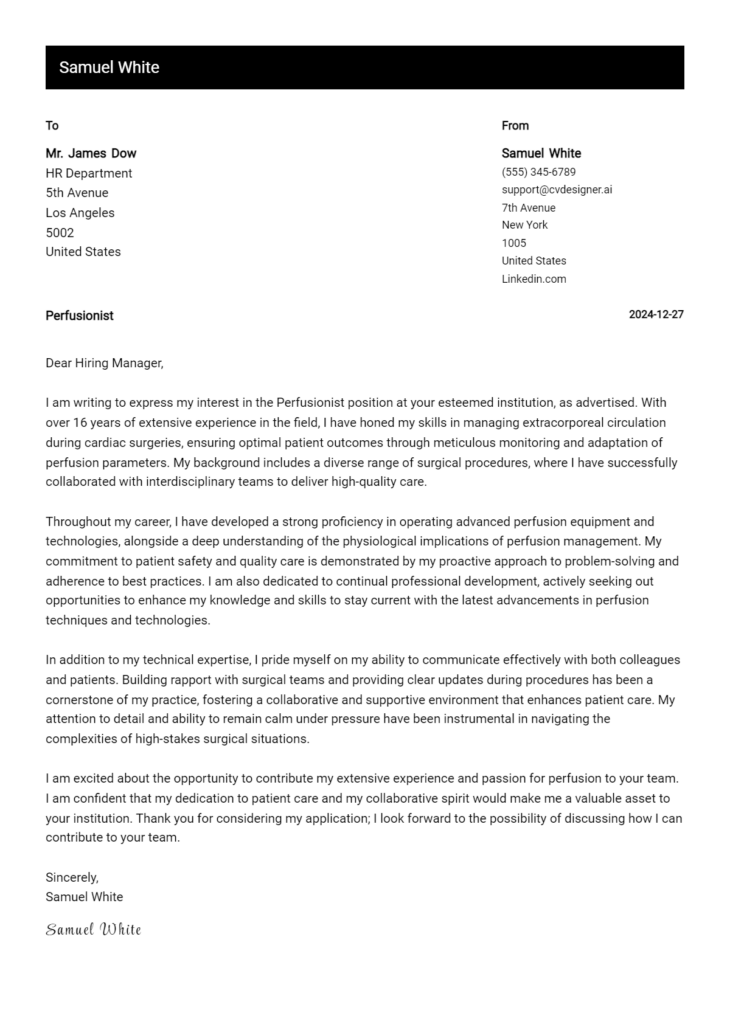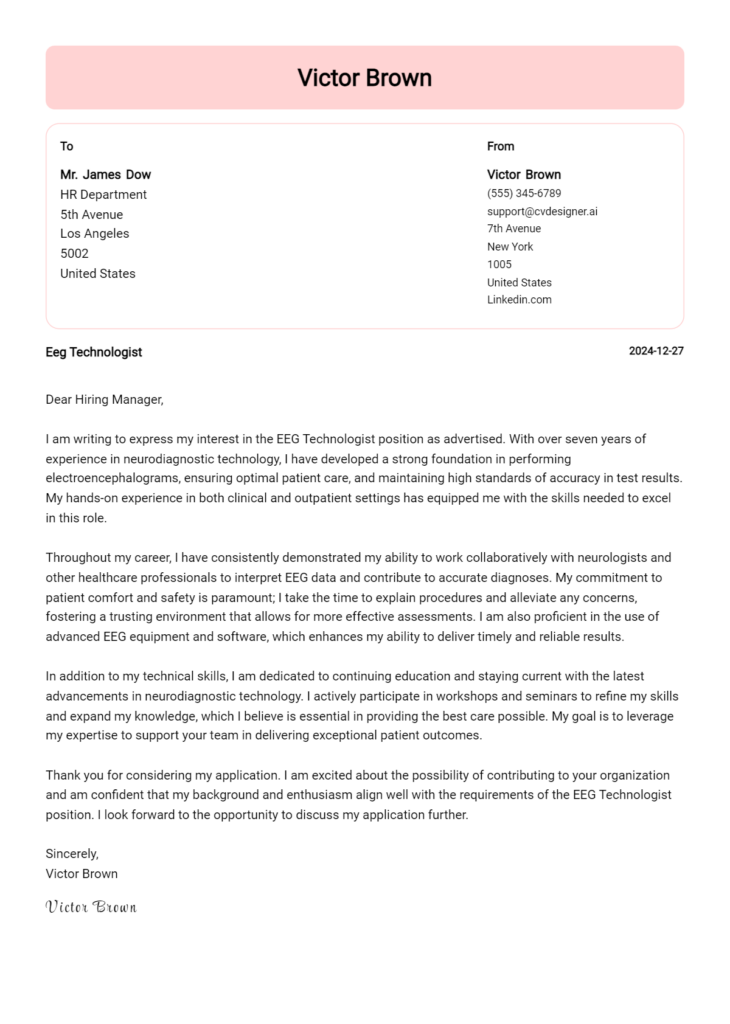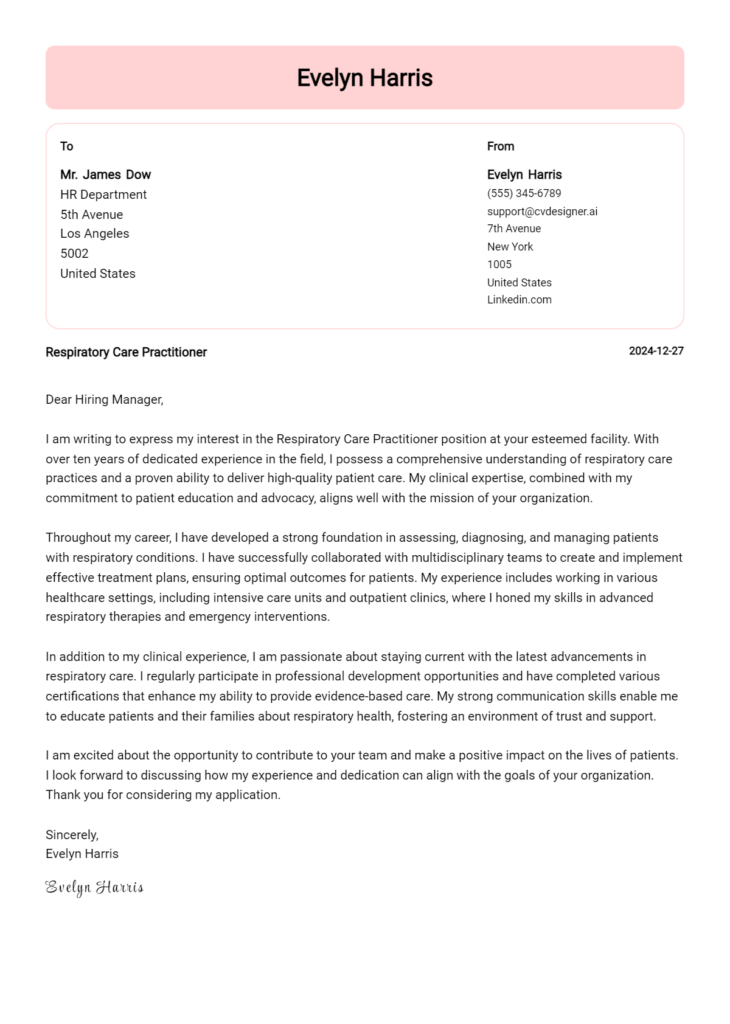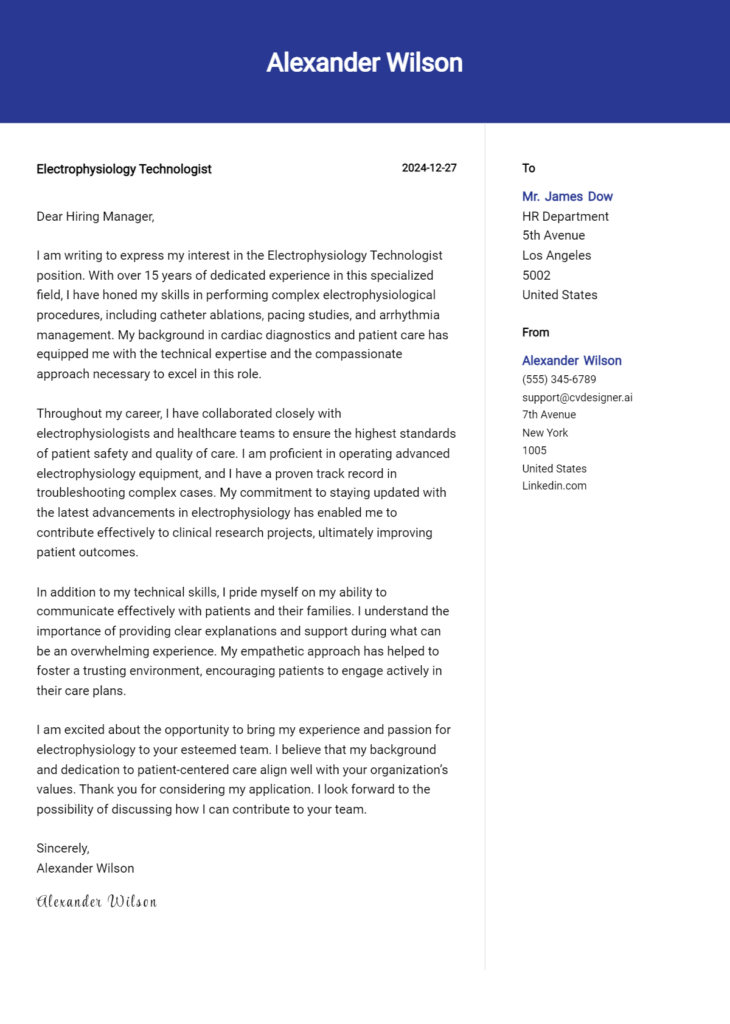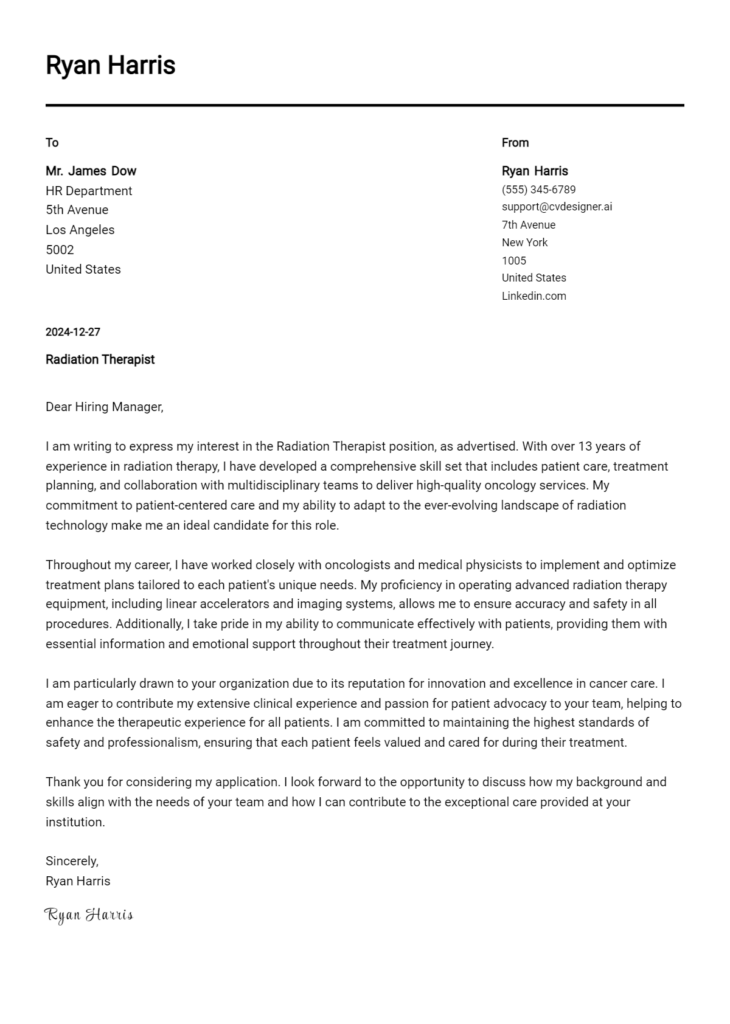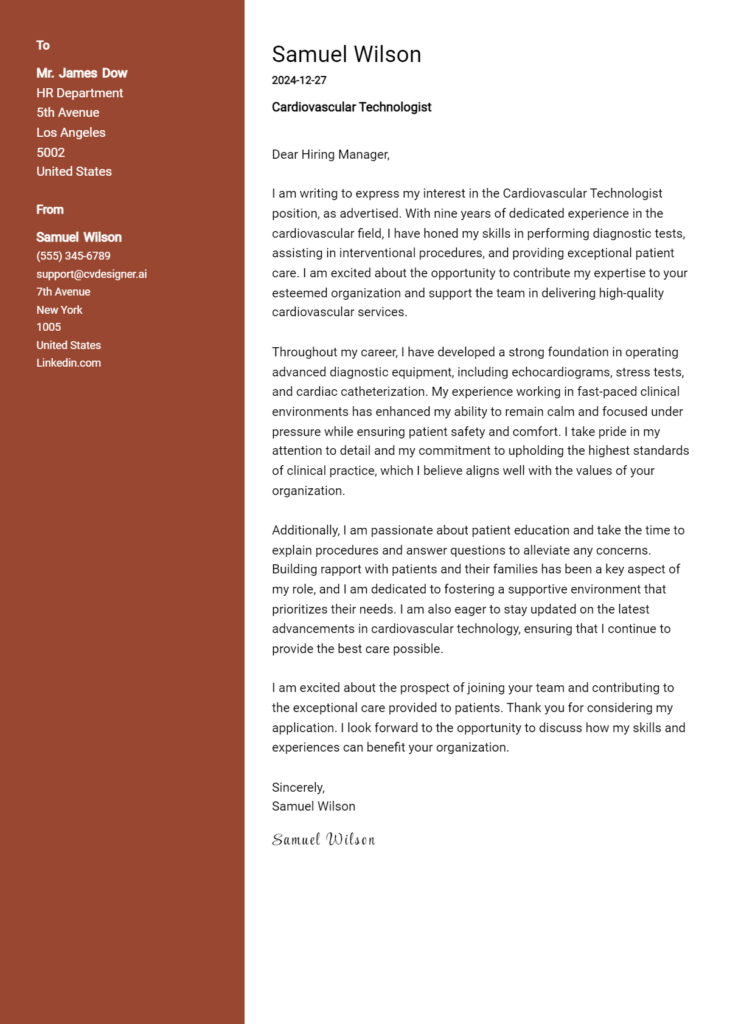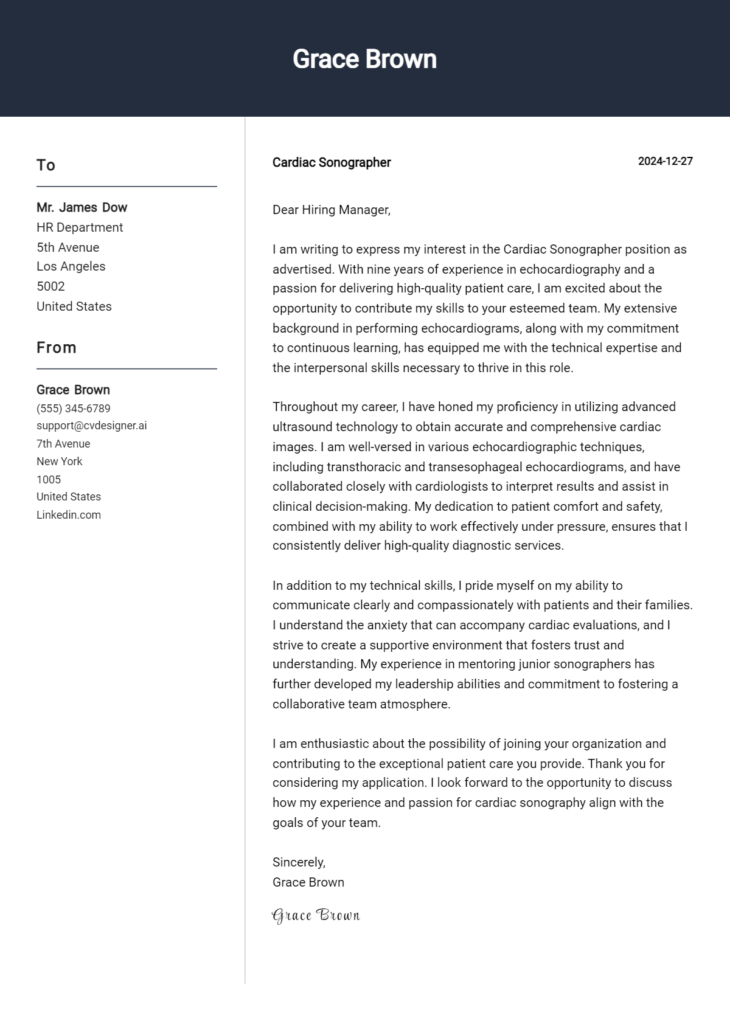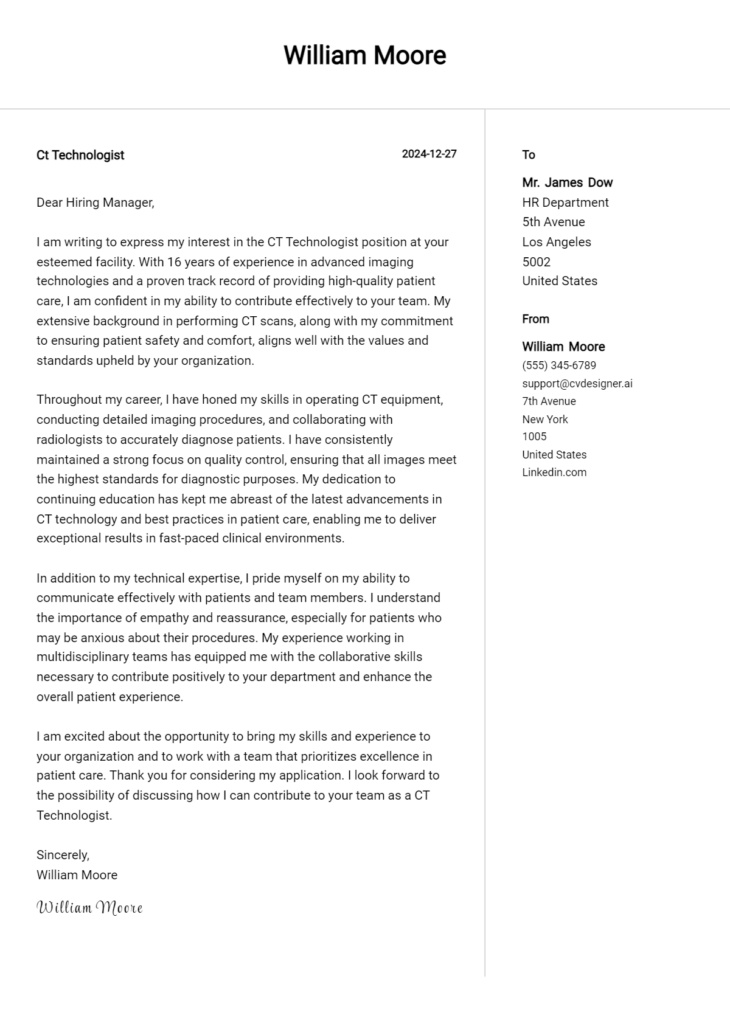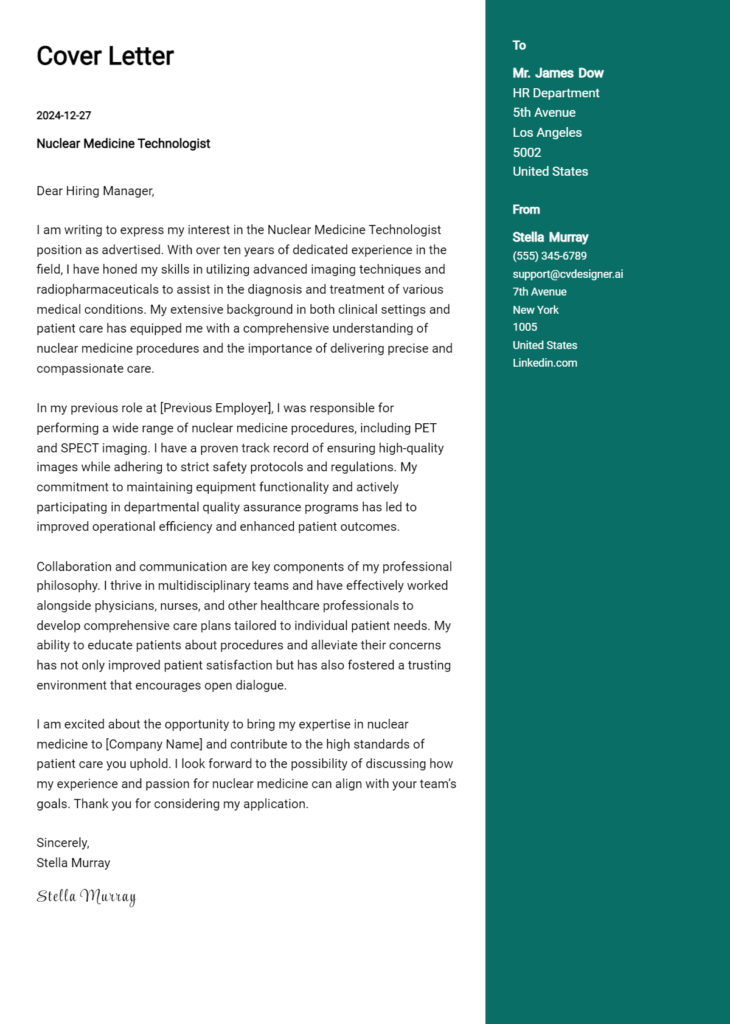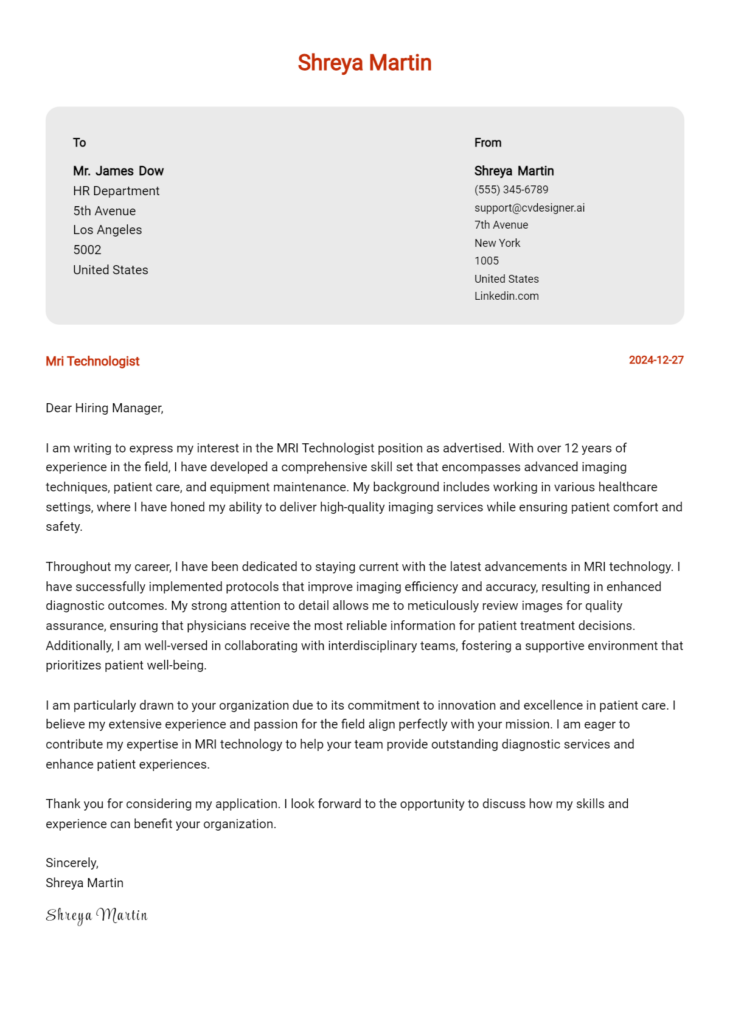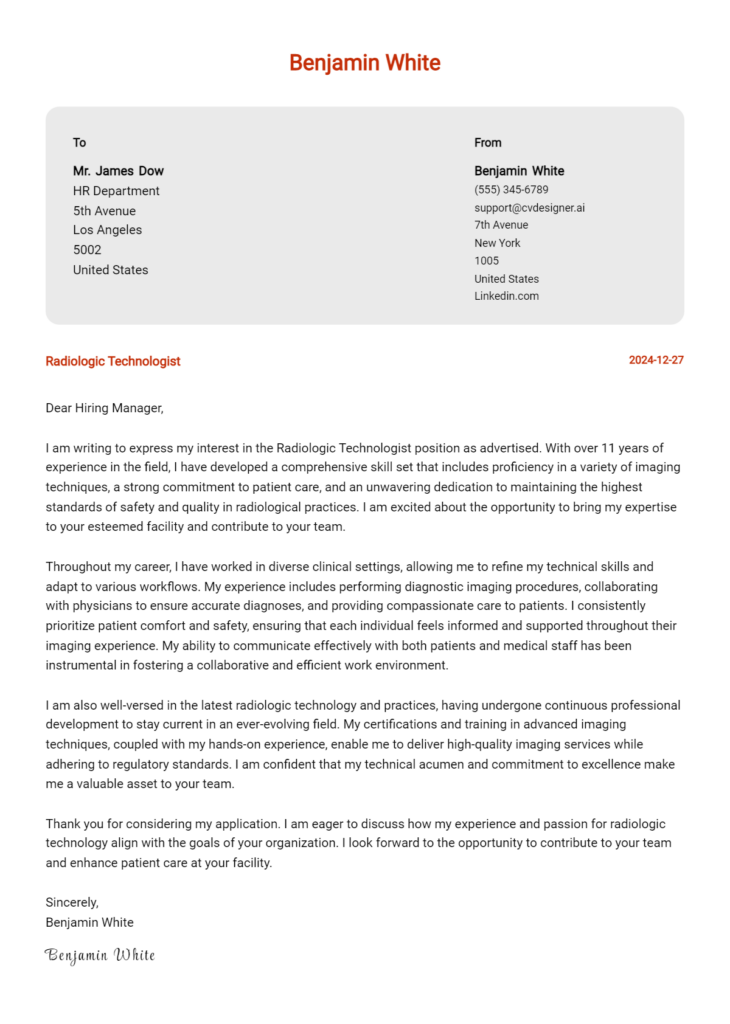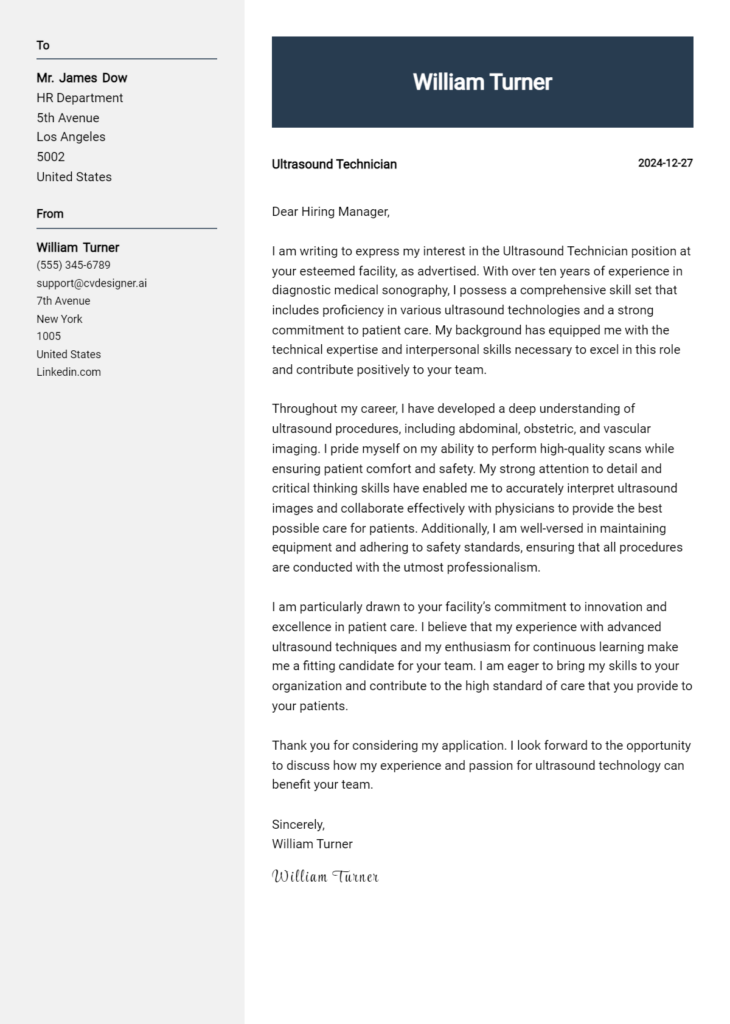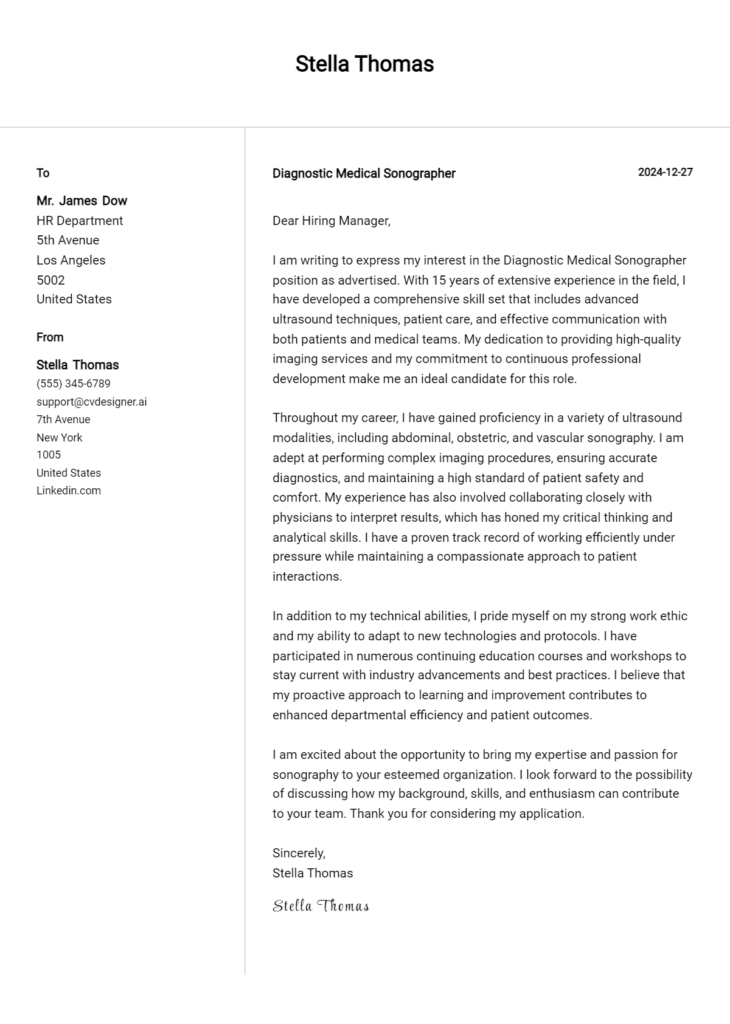Cytotechnologist Cover Letter Examples
Explore additional Cytotechnologist cover letter samples and guides and see what works for your level of experience or role.
How to Format a Cytotechnologist Cover Letter?
Crafting a compelling cover letter is essential for Cytotechnologists, as it serves as your first impression on potential employers. The way you format your cover letter showcases your attention to detail and your ability to communicate effectively—traits that are paramount in the field of cytotechnology. A well-structured cover letter not only highlights your qualifications but also demonstrates your professionalism and dedication to patient care.
In this guide, we'll outline the proper format for a Cytotechnologist cover letter, ensuring that you present your skills in the best possible light.
We'll focus on the essential components of a professional cover letter, including:
- Cover Letter Header
- Cover Letter Greeting
- Cover Letter Introduction
- Cover Letter Body
- Cover Letter Closing
Each section is crucial in making your application stand out and in conveying your unique value as a Cytotechnologist. Let's dive into the specifics of each part and explore how to create a memorable cover letter that resonates with hiring managers.
Importance of the Cover Letter Header for a Cytotechnologist
A well-crafted cover letter header is crucial for a Cytotechnologist as it sets the tone for your application and provides essential information to the recipient. The header should include your contact information, the date, and the recipient's details, ensuring that the letter is professional and easy to navigate. Clarity in the header reflects your attention to detail, which is vital in the field of cytotechnology, where precision is paramount. A strong header can make a positive first impression, while a poorly formatted one may detract from your overall candidacy.
Strong Example
Jane Doe, CT (ASCP) 123 Main Street Cityville, ST 12345 jane.doe@email.com (123) 456-7890 October 1, 2023 Dr. John Smith Cytology Department Health Innovations Lab 456 Elm Street Cityville, ST 12345
Weak Example
jane doe 123 main st cityville, st 10/1/23 john smith health innovations lab
The Importance of a Cover Letter Greeting for Cytotechnologist
The greeting of your cover letter is crucial as it sets the tone for the entire document and reflects your professionalism and attention to detail. A well-crafted greeting not only conveys respect but also personalizes your communication, making it more engaging for the hiring manager. By addressing the recipient directly, you show that you have taken the time to research and find out who will be reading your application, which can make a significant difference in a competitive job market. To avoid generic greetings that may come off as impersonal, it is advisable to look up the hiring manager's name through the company's website or LinkedIn. This small effort can enhance your connection with the reader and increase your chances of making a memorable impression.
Strong Greeting Example
Dear Ms. Johnson,
Weak Greeting Example
To Whom It May Concern,
The Importance of a Well-Crafted Cover Letter Introduction for a Cytotechnologist
A well-crafted cover letter introduction is vital for a Cytotechnologist as it serves as the first impression a candidate makes on the hiring manager. This opening paragraph should not only capture attention but also convey genuine interest in the role. A strong introduction will succinctly highlight key skills or achievements relevant to cytotechnology, setting the stage for the rest of the letter. Conversely, a weak introduction may lack enthusiasm or clarity, failing to engage the reader's interest. Here are examples of both strong and weak introductions to illustrate this point.
Strong Example
Dear [Hiring Manager's Name], I am excited to apply for the Cytotechnologist position at [Company Name], where my extensive experience in screening and evaluating cellular samples will contribute to your team's commitment to high-quality patient care. With over five years of experience in a leading laboratory, I have honed my skills in identifying abnormalities and collaborating with pathologists to ensure accurate diagnoses. I am eager to bring my dedication and expertise to [Company Name] and help advance your mission of excellence in cytology.
Weak Example
Hello, I am writing to apply for the Cytotechnologist job. I have some experience in this field and think I might be a good fit. I hope you consider my application.
Purpose of the Cover Letter Body for a Cytotechnologist
The body of a cover letter for a Cytotechnologist serves as a vital platform for candidates to articulate their specialized skills, relevant experiences, and the unique value they bring to the prospective employer. It allows applicants to delve into specific projects or accomplishments that demonstrate their proficiency in examining cellular samples for signs of disease, as well as their ability to work collaboratively in a clinical setting. By highlighting these elements, candidates can effectively convey how their expertise aligns with the needs of the hiring organization and showcase their potential contributions to the team.
Strong Example
I am excited to apply for the Cytotechnologist position at XYZ Laboratory, where I can leverage my five years of experience in cytopathology. In my previous role at ABC Medical Center, I successfully implemented a new screening protocol that improved diagnostic accuracy by 20%. Additionally, I collaborated with a multidisciplinary team to develop a training program for new hires, which enhanced our department's efficiency and reduced turnover rates. My passion for precision and commitment to continuous learning will make me a valuable asset to your team.
Weak Example
I want to apply for the Cytotechnologist job at your company. I have worked in labs before and know how to look at samples. I think I would be a good fit because I work well with others. I've done some projects but I don't remember the details. I really want to help your company.
Importance of the Cover Letter Closing for a Cytotechnologist
The closing paragraph of a cover letter is crucial as it serves to summarize the candidate's qualifications, reiterate their enthusiasm for the position, and encourage the hiring manager to take the next steps. For a Cytotechnologist, this means emphasizing their expertise in cytopathology, attention to detail, and commitment to patient care. A strong closing leaves a lasting impression, prompting the employer to review the resume and consider scheduling an interview. Conversely, a weak closing may fail to convey confidence and leave the reader unconvinced of the candidate's fit for the role.
Strong Example
Thank you for considering my application for the Cytotechnologist position at [Company Name]. With my extensive training in cytopathology, coupled with my passion for ensuring accurate diagnoses and improving patient outcomes, I am excited about the opportunity to contribute to your team. I look forward to the possibility of discussing my qualifications in more detail and how I can support your organization's mission. Please feel free to review my resume, and I hope to hear from you soon to schedule an interview.
Weak Example
I think I would be a good fit for the Cytotechnologist role. I hope you look at my resume. Let me know if you want to talk.
These tips will help candidates craft an effective cover letter for a Cytotechnologist position, emphasizing the importance of showcasing relevant technical skills, problem-solving abilities, knowledge of the Software Development Life Cycle (SDLC), teamwork, and a passion for continuous learning. A well-written cover letter can set you apart from other candidates by clearly articulating your qualifications and enthusiasm for the role.
Tips for Writing a Cytotechnologist Cover Letter
Highlight Technical Skills
Clearly outline your technical skills relevant to cytotechnology, such as proficiency in microscopy, specimen preparation, and laboratory techniques. Provide specific examples of how you have utilized these skills in past roles or internships. This will demonstrate your capability to perform the necessary tasks effectively.Showcase Problem-Solving Abilities
Include instances where you've encountered challenges in a laboratory setting and how you've resolved them. This not only reflects your analytical skills but also your ability to think critically under pressure. Describe the situation, your approach to solving it, and the positive outcome.Demonstrate Knowledge of SDLC
If applicable, mention your familiarity with the Software Development Life Cycle (SDLC) as it relates to laboratory information systems. Highlight any experience you have with implementing or improving laboratory software solutions, as this knowledge can be highly beneficial in a modern cytotechnology environment.Emphasize Teamwork
Cytotechnologists often work as part of a larger healthcare team. Share examples of successful collaboration with pathologists, lab technicians, and other professionals. Discuss how your communication and interpersonal skills contribute to a positive and efficient work environment.Express a Passion for Continuous Learning
The field of cytotechnology is constantly evolving, and employers value candidates who are committed to professional development. Mention any relevant certifications, courses, or workshops you've completed or plan to pursue. This demonstrates your proactive approach to staying current in your field and your dedication to enhancing your skills.
For further assistance in crafting your cover letter, consider exploring cover letter templates or utilizing a cover letter builder to streamline the process and ensure your application stands out.
Common Mistakes to Avoid in a Cytotechnologist Cover Letter
Crafting a compelling cover letter is essential for a successful application as a Cytotechnologist. Avoiding common pitfalls can significantly enhance your chances of making a positive impression. Here are some frequent mistakes to watch out for:
Generic Content: Using a one-size-fits-all template can make your letter feel impersonal. Tailor your cover letter to the specific job and institution by referencing their values and how your skills align with their needs.
Ignoring Formatting: A cluttered or improperly formatted cover letter can turn off hiring managers. Follow a clear cover letter format to ensure it is easy to read and looks professional.
Overly Technical Language: While you need to demonstrate your expertise, using jargon that is too technical can alienate the reader. Strive for a balance by explaining complex concepts in simple terms when necessary.
Failing to Highlight Relevant Experience: Neglecting to connect your past experiences to the job description is a missed opportunity. Be specific about how your previous roles have prepared you for the Cytotechnologist position.
Not Proofreading: Spelling and grammatical errors can undermine your professionalism. Always proofread your cover letter or ask someone else to review it before submission.
Lack of Enthusiasm: A cover letter that reads as indifferent can be a deal-breaker. Convey your passion for the field and your eagerness to contribute to the organization.
Making It About You Alone: Focusing solely on your qualifications without addressing the employer's needs can make your letter less impactful. Make sure to highlight how you can add value to their team.
By steering clear of these mistakes, you can create a strong cover letter that enhances your application. For inspiration, check out some cover letter examples that showcase effective strategies.
Cover Letter FAQs for Cytotechnologist
What should I include in my cover letter as a Cytotechnologist?
In your cover letter, you should include your relevant educational background, certifications, and work experience in cytotechnology. Mention specific skills, such as proficiency in microscopic analysis and familiarity with laboratory protocols. Highlight any experience you have with patient interaction or teamwork, as these are crucial in a clinical setting. Additionally, express your passion for cytotechnology and your commitment to patient care. Tailoring your cover letter to the specific job by mentioning the facility or team you’re applying to can also make a strong impression.
How can I make my cover letter stand out for a Cytotechnologist position?
To make your cover letter stand out, focus on showcasing your unique experiences and accomplishments in the field of cytotechnology. Use specific examples, such as successful diagnoses or improvements you contributed to in laboratory processes. Including metrics, like the number of samples processed or accuracy rates, can provide concrete evidence of your skills. Additionally, demonstrate your understanding of the latest advancements in cytotechnology and how you can contribute to the facility’s goals. A well-structured letter with a professional tone and a clear narrative about your career can effectively capture the reader’s attention.
Should I address my cover letter to a specific person or use a general greeting?
Whenever possible, address your cover letter to a specific person, such as the hiring manager or department head. This shows that you have done your research and are genuinely interested in the position. If the job posting does not provide a name, you can often find this information on the organization’s website or by calling their HR department. If you still cannot find a specific name, using a general greeting like “Dear Hiring Manager” is acceptable. Avoid overly generic salutations like “To Whom It May Concern,” as they can make your letter feel less personalized.
How long should my cover letter be for a Cytotechnologist role?
Your cover letter should ideally be one page long, consisting of three to four paragraphs. Aim for around 250-400 words. Start with a strong introduction that states the position you’re applying for and your enthusiasm for it. The body should detail your relevant experience, skills, and accomplishments in cytotechnology, while the conclusion should express your interest in an interview and provide your contact information. Keeping your cover letter concise and focused allows hiring managers to quickly assess your qualifications and interest, increasing the likelihood of being invited for an interview.
Build your Cover Letter in minutes
Use an AI-powered cover letter builder and have your letter done in 5 minutes. Just select your template and our software will guide you through the process.

